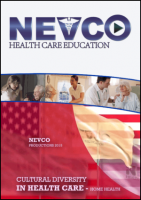California Caregiver Training and Certification for Home Care
By Business Training Media
The role of a caregiver in California is vital, providing compassionate care and support to individuals who require assistance with daily activities due to age, illness, or disability. In order to ensure the highest standards of care are being met, California requires caregivers to undergo training and certification.
The California Department of Social Services (CDSS) oversees the training and certification requirements for caregivers in the state. This includes both paid caregivers who work for a home care agency as well as family caregivers who are caring for a loved one at home.
Training Requirements
The CDSS requires caregivers to complete 10 hours of training before they can begin providing care to clients. This training covers a range of topics, including:
- Basic caregiving skills: This includes information on how to assist with activities of daily living (ADLs), such as bathing, dressing, and grooming, as well as how to properly use mobility aids like wheelchairs and walkers.
- Infection control: caregivers must understand how to prevent the spread of infection, including proper handwashing techniques and the use of personal protective equipment (PPE).
- Safety: Caregivers must be aware of potential hazards in the home and know how to prevent falls, burns, and other accidents.
- Communication: Caregivers must be able to communicate effectively with clients and their families, as well as with other healthcare professionals.
- Nutrition: Caregivers must understand the importance of a healthy diet and how to prepare nutritious meals.
- Dementia care: Caregivers who work with clients with dementia must have specialized training in how to manage the unique challenges associated with this condition.
Certification Requirements
In addition to completing the initial 10 hours of training, caregivers in California must also obtain certification from the CDSS. This involves passing a written exam that covers the material covered in the training as well as demonstrating competency in certain skills, such as:
- Proper handwashing techniques
- Assistance with ADLs
- Proper use of mobility aids
- Basic first aid
- Use of PPE
- Communication skills
Caregivers must renew their certification every two years by completing at least 5 hours of continuing education and passing a renewal exam.
Benefits of Training and Certification
The training and certification requirements for caregivers in California serve several important purposes. First and foremost, they ensure that caregivers have the knowledge and skills necessary to provide high-quality care to their clients. This can help to improve the overall health and well-being of clients, as well as prevent complications and hospitalizations.
Additionally, training and certification can help professionalize the role of caregiving. By requiring caregivers to undergo formal training and obtain certification, California is sending a message that caregiving is a skilled profession that requires a certain level of knowledge and expertise.
Finally, training and certification can provide peace of mind for clients and their families. Knowing that their caregiver has been trained and certified can help alleviate concerns about the quality of care being provided.
Challenges to Training and Certification
While the training and certification requirements for caregivers in California are an important step forward, they are not without their challenges. One of the biggest challenges is ensuring that all caregivers have access to training and certification programs.
The agency typically provides training and certification to paid caregivers who work for a home care agency. However, for family caregivers who are caring for a loved one at home, accessing training and certification can be more difficult. These caregivers may not be aware of the requirements or may not have the financial resources to pay for training.
Another challenge is ensuring that the training and certification programs are of high quality. While there are many reputable training programs available, there are also programs that may not provide the level of training necessary to ensure quality care. The CDSS must continue to monitor and evaluate training and certification programs to ensure that they meet the needs of caregivers and provide the necessary knowledge and skills.
Finally, the cost of training and certification can be a barrier for some caregivers. While the first 10 hours of training are legally required and must be free for paid caregivers, additional training and certification may have a fee. This can be a burden for caregivers, who may already be struggling financially.
Addressing these challenges will require a collaborative effort from caregivers, home care agencies, policymakers, and other stakeholders. This may include increasing funding for caregiver training and certification programs, expanding access to training for family caregivers, and developing quality standards for training programs.
Caregivers play a critical role in the lives of individuals who require assistance with daily activities due to age, illness, or disability. In order to ensure that caregivers have the knowledge and skills necessary to provide high-quality care, California requires caregivers to undergo training and certification.
While these requirements are an important step forward, there are challenges that must be addressed to ensure that all caregivers have access to training and certification programs and that these programs are of high quality. By working together, caregivers, home care agencies, policymakers, and other stakeholders can help improve the quality of care provided to individuals in need and ensure that caregivers are recognized and valued for the important work they do.
Copyright 2023: Business Training Media
Join Our Free HR Training Solutions eNewletter
Join our free HR Training Solutions eNewsletter today to stay up-to-date on the latest industry trends, training and development programs, best practices, and expert insights. Gain valuable knowledge, enhance your skills, improve your organization, build productive teams and elevate your career. Don't miss out on this invaluable resource – sign up now for our free HR Training Solutions eNewsletter!

Cultural Diversity In Health Care: Home Health - Video

Infection Control In The Home Settings - Video

Healthcare Facilities Safety Training Package
Business Training Media's ensure the safety and well-being of your healthcare facility's employees with our comprehensive six training video package. Dive into the intricacies of healthcare facilities' safetysafety practices, as our expert instructors guide your employees through essential training modules.





